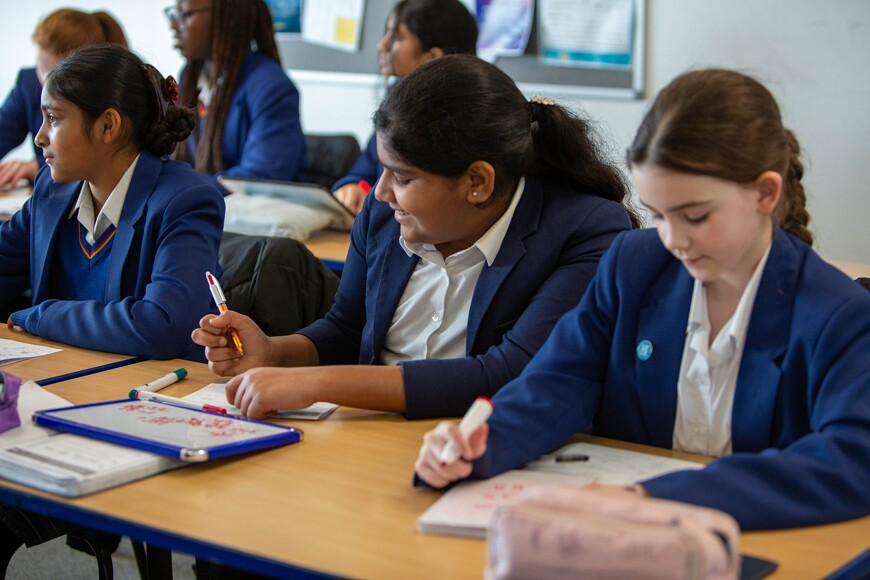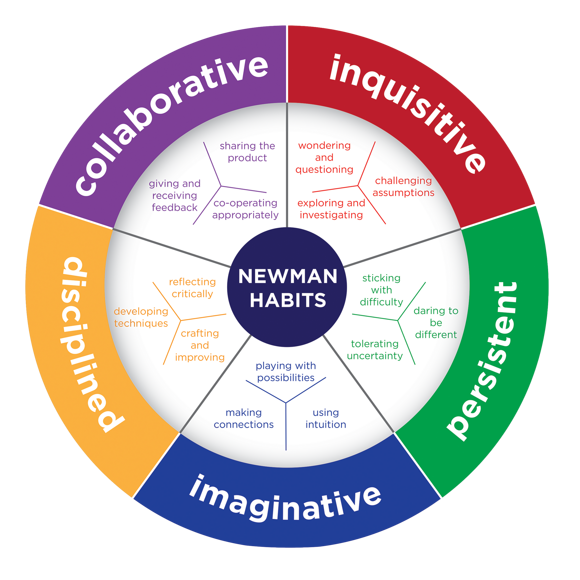Assessment & Reporting

At The Saint John Henry Newman School, assessment helps every student grow in knowledge, confidence, and character. It enables teachers to adapt their teaching, students to reflect and improve, and parents to stay closely connected with progress. We believe in working together to help each child fulfil their God-given potential.
How We Assess Learning
Assessment at JHN happens in two key ways:
- In the classroom, teachers use regular checks like questioning, discussion, and retrieval activities to monitor understanding and adapt teaching accordingly (this is called formative assessment).
- At key points in the year, students complete more formal assessments, such as topic tests or mock exams, which help us evaluate long-term progress (known as summative assessment).
Both forms of assessment help identify strengths, target areas for development, and support achievement over time.
How We Report to Parents
We share student progress through:
- Three Learning Reviews each year (termly progress reports)
- A Parents’ Consultation Evening
- Ongoing access to GO4Schools (our online data system)
Learning Reviews include information on:
- Target grade or step
- Most likely grade or step based on current progress
- Classwork and attitudes for learning (rated 1–4)
- Attendance
- Colour-coded indicators showing progress towards targets
Understanding Progress and Targets
- At Key Stage 3, students work within four progressive thresholds: Emerging, Developing, Securing, and Mastering, aligned to curriculum knowledge and skills.
- At Key Stage 4, students are given an Aspirational Target Grade and a Most Likely Grade, updated based on assessments.
- At Key Stage 5, students are set a Minimum Expected Grade (MEG) and evaluated using the VESPA model — which promotes habits of successful learners.
For full details on what’s reported and how to interpret each section, please download our Learning Review Guides:
The Newman Habits Framework
Our Learning Reviews are not just about academic outcomes. They are part of a wider framework that supports the formation of the whole child. This is guided by our Newman Habits — a set of behaviours and virtues we seek to foster in every student.
These include habits such as:
- Self-regulation and resilience
- Curiosity and critical thinking
- Responsibility and compassion
- Growth mindset and independent learning
The ratings you see for Classwork and Attitudes for Learning reflect how well your child is developing these habits. They’re a key part of helping every student become not only a successful learner, but also the person God intends them to be.
Newman Habits Diagram

Learning Reviews Explained – Parent Video Guide
For a step-by-step explanation of how to read and interpret your child’s Learning Review, please watch this short video:
Inclusion and Individual Support
Our assessment and reporting system is inclusive and responsive. For students with additional needs, we ensure assessment reflects both their learning and effort. Progress is measured from their starting point, with appropriate support and adjustments in place.
Working Together
Strong communication between home and school is vital. If you have questions about your child’s Learning Review or would like further guidance, please don’t hesitate to contact their form tutor or subject teacher.



